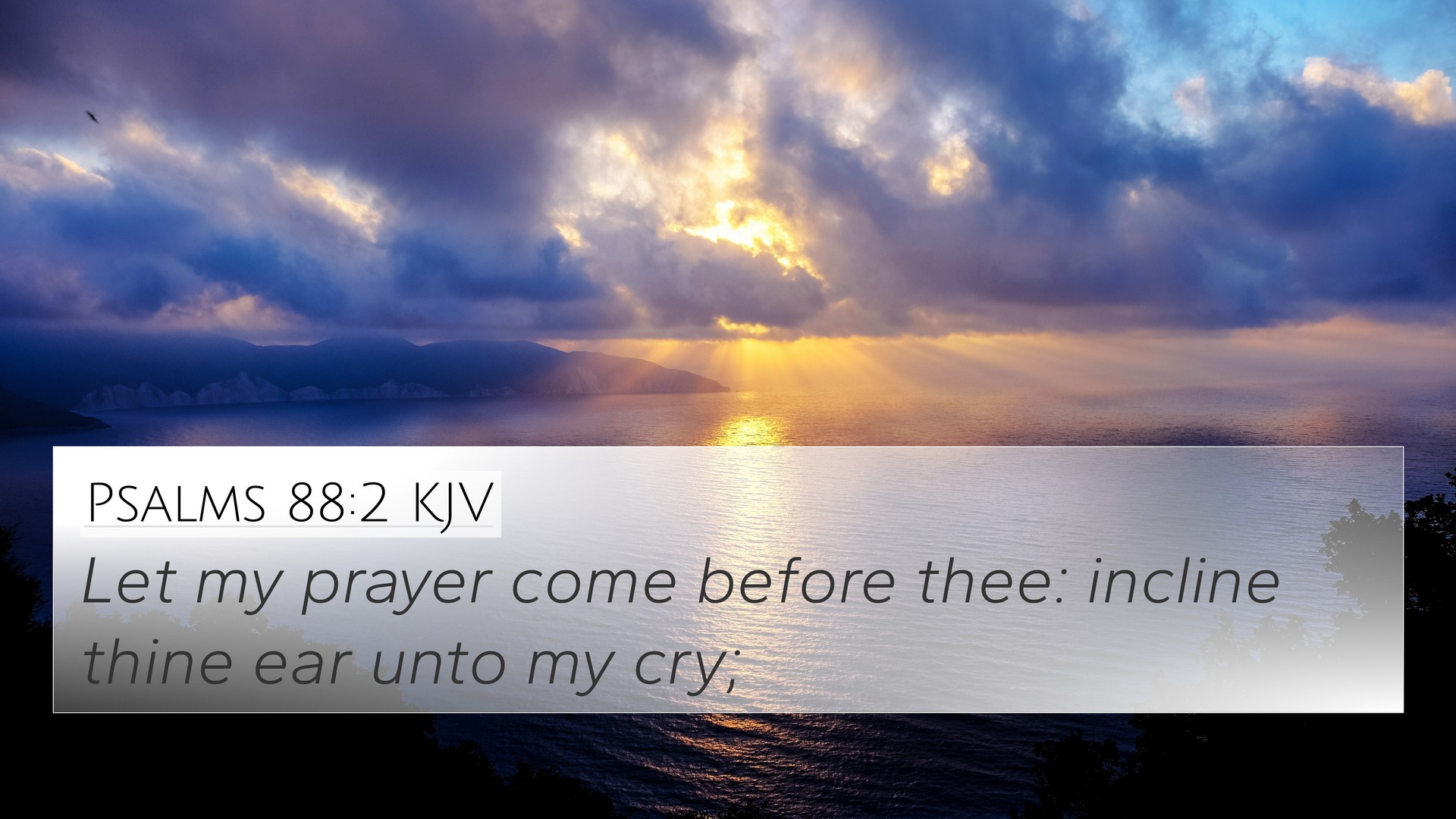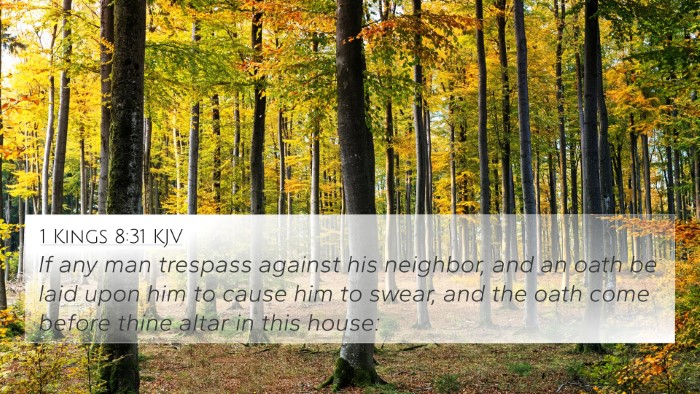Psalms 88:2 - Meaning and Interpretation
The verse Psalms 88:2 reads: "Let my prayer come before thee: incline thine ear unto my cry." This verse conveys a deep plea for God's attention and mercy, indicating an urgent desire for divine engagement during distressing times.
Summary of Insights from Public Domain Commentaries
This verse is packed with meaning, and various commentaries provide valuable insights into its significance:
-
Matthew Henry:
Henry emphasizes the importance of prayer as a means of communication with God. He notes that the psalmist expresses a heartfelt longing for God to listen and respond to his desperate cry. This highlights not only the intensity of the psalmist's suffering but also the unwavering faith that even in despair, prayer is a lifeline.
-
Albert Barnes:
Barnes explores the context of the psalmist's plea, suggesting that it stems from a profound sense of abandonment and distress. He points out that the phrase "incline thine ear" suggests an intimate and attentive response from God, which reflects the psalmist’s hope for divine intervention amidst overwhelming sorrow.
-
Adam Clarke:
Clarke elaborates on the urgency of the request, noting that the psalmist is not just asking for a casual interaction but is in a state of deep need. He connects this verse to the broader theme of laments found in the Psalms, drawing parallels to how other characters in the Bible have cried out for God’s help during crises.
Thematic Connections and Cross-References
Psalms 88:2 serves as a reminder of the multitude of instances in Scripture where individuals call upon God in their times of need. Here are several biblical references that share this theme:
- Psalms 34:15: "The eyes of the LORD are upon the righteous, and his ears are open unto their cry."
- Psalms 102:1: "Hear my prayer, O LORD, and let my cry come unto thee."
- Psalms 130:1-2: "Out of the depths have I cried unto thee, O LORD. Lord, hear my voice: let thine ears be attentive to the voice of my supplications."
- Isaiah 65:24: "And it shall come to pass, that before they call, I will answer; and while they are yet speaking, I will hear."
- Lamentations 3:55-56: "I called upon thy name, O LORD, out of the low dungeon. Thou hast heard my voice: hide not thine ear at my breathing, at my cry."
- 1 Peter 5:7: "Casting all your care upon him; for he careth for you."
- Matthew 7:7: "Ask, and it shall be given you; seek, and ye shall find; knock, and it shall be opened unto you."
Understanding the Context
The context of Psalms 88 is crucial for a deeper understanding. This psalm is one of lament, where the psalmist expresses feelings of despair and darkness. By calling out for God's attention, the psalmist not only acknowledges his suffering but also empowers the act of prayer as an essential practice in seeking a relationship with God.
Prayer and Human Experience
In times of trouble, the sincerity of a prayer can often be an anchor in one's life. The longing for God to "incline thine ear" speaks to a human experience that transcends time and culture, as people everywhere seek answers and solace through prayer.
Practical Applications
For those seeking to deepen their understanding of prayer, the following methods can enhance one’s spiritual journey:
- Reflect on personal experiences of crying out for help, and journal those prayers.
- Engage in communal prayer where multiple voices converge in seeking divine attention.
- Explore the Bible using cross-reference tools to understand how prayer is portrayed throughout scripture.
- Utilize a Bible concordance to discover similar verses and enhance thematic understanding.
Final Thoughts
Psalms 88:2 encapsulates a powerful yearning for divine interaction, driving home the message that in our darkest moments, turning to God in prayer is both a necessity and a comfort. The connections in Scripture serve as a reminder that we are not alone in our struggles and that our cries have the potential to be heard.
Keywords for Further Study
The exploration of Psalms 88:2 unveils a rich tapestry of themes. Here are some keywords to guide further study:
- Bible verse cross-references
- Connections between Bible verses
- Linking Bible scriptures
- Comparative Bible verse analysis
- Bible verses that relate to each other
- Cross-referencing Biblical texts
- Thematic Bible verse connections
- Bible verse parallels
- Scriptural cross-referencing
- Inter-Biblical dialogue
Utilizing these resources can significantly enhance one’s understanding of not just Psalms 88:2, but the overarching narrative of lament, hope, and divine relationship found throughout the Scriptures.







